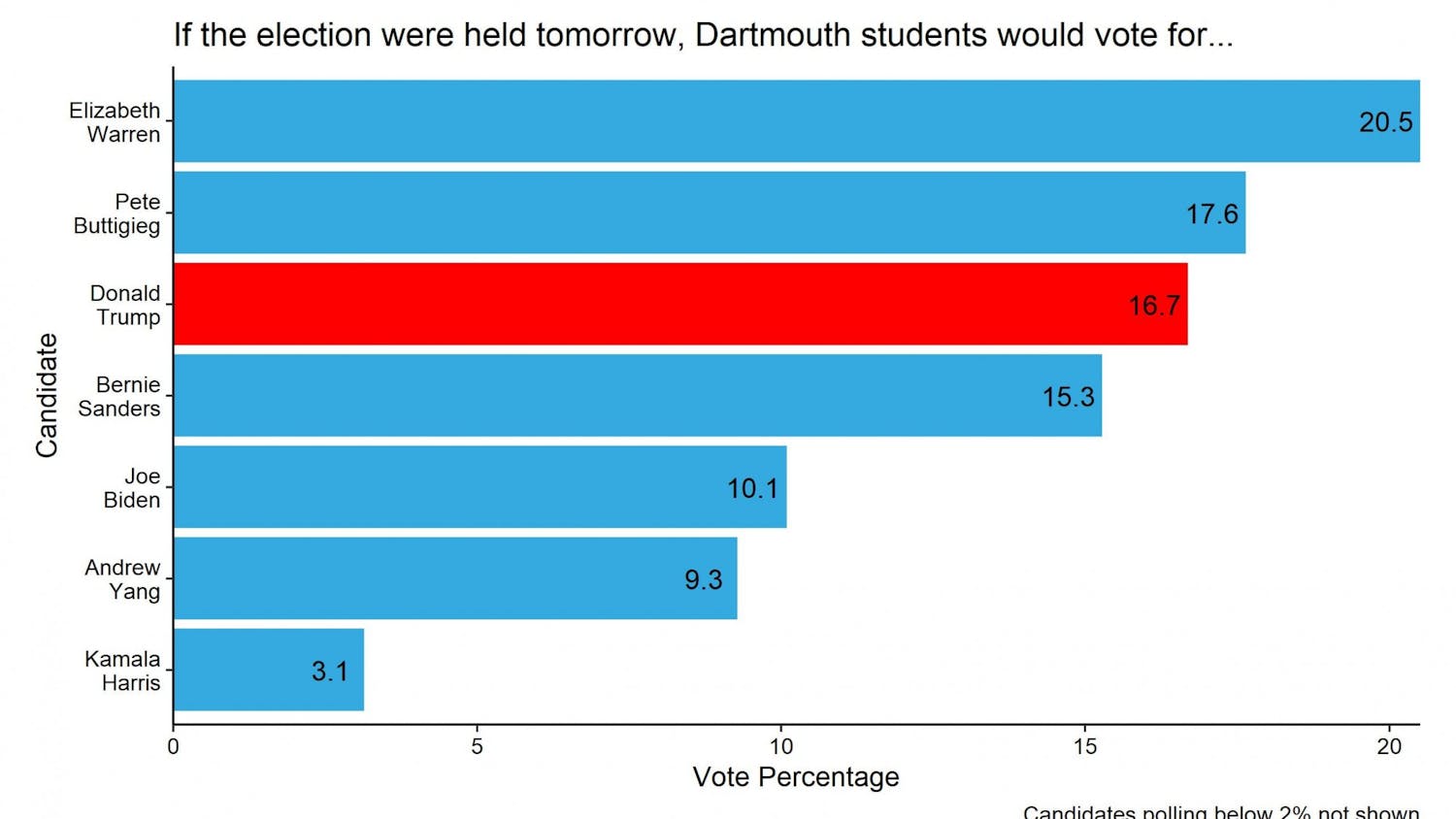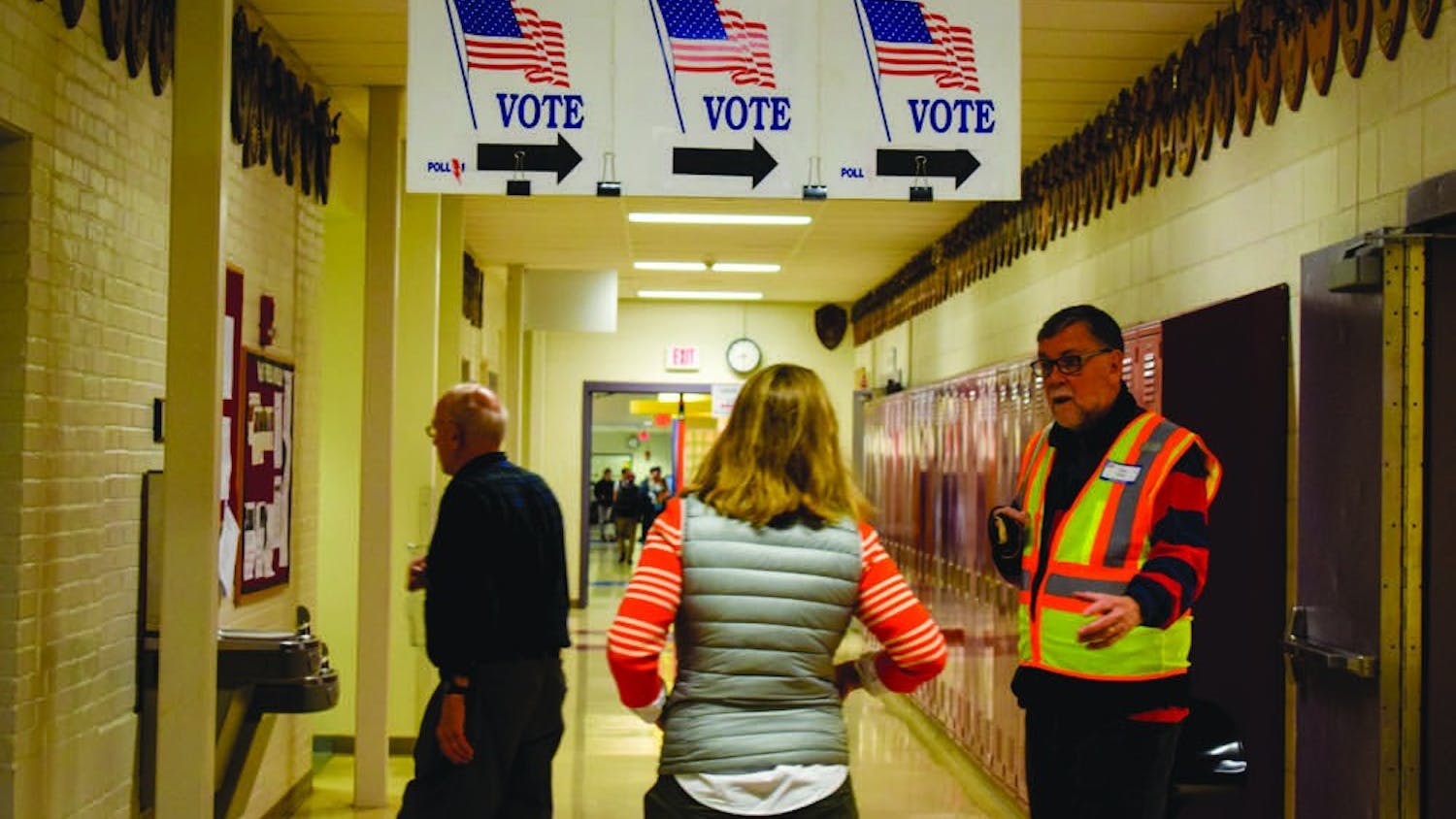Flip to any news channel or open any newspaper or news site — or take a stroll across Dartmouth’s campus — and I doubt you’ll be able to last more than a few minutes without encountering the concept of “electability.” With the upcoming Democratic primary and New Hampshire’s today, voters want to pick whoever they think has the best chance of defeating Donald Trump come November. And while there are many bright, politically astute people on this campus and in this town who are wrestling with this concept and this decision today, I encourage them to fret not — because the concept of “electability” and everything it entails should be your last priority at the voting booth.
That’s in large part because electability is an amorphous concept that voters are notoriously bad at recognizing. Don’t take it personally — this is true across the board, and in no way, shape or form reflects how informed or up-to-speed a voter is. The only thing that experts seem to agree on about electability is how terrible voters are at measuring it.
Patrick Murray, founding director of the Monmouth University Polling Institute, confirmed this to NBC News, remarking how “electability is in the eye of the beholder.” Political scientist Jonathan Bernstein pointed out in a New York Times op-ed that “there’s simply no good way to know which candidate will do best in the general election” — and, he said, the same goes for the primaries. Not sure who the rest of America will vote for? Take it easy — neither does anyone else.
Even if unfounded, concerns about electability can still have real consequences on voters’ minds and decisions. In practice, fear about a candidate’s electability usually translates into voters supporting more moderate candidates, whom they view as more palatable and, perhaps, more capable of swinging middle-of-the-road voters torn between Trump and the Democratic nominee.
Now, we have no way of knowing for sure how voters will choose in the future, but we can observe and learn from how they have behaved in the past. Trump’s greatest threat has not been candidates who were unwilling to take risks, but candidates who were willing to challenge the status quo. Just look at Bernie Sanders’ success in the Rust Belt in the 2016 Democratic primary — particularly his significant wins in Michigan and Wisconsin. Meanwhile, the last time Trump ran against a middle-of-the-road, moderate candidate — in the 2016 presidential race against Hillary Clinton — well, I don't need to tell you how that ended.
And keep in mind Joe Biden’s dismal performance in Iowa. In last week’s caucus, the “highly electable” former vice president ended up finishing a distant fourth, to the shock of many who expected him to finish second, if not first.
For some, Biden’s poor showing was a sign to rush to another moderate’s campaign, but I’m not convinced that the best response to one moderate’s campaign flop is to pick another moderate, or an equally interchangeable candidate.
But if your reason for voting for a moderate is electability, I’d think again. I’m not persuaded that we have to settle for a candidate willing to receive donations from billionaires who give their money with strings attached. Nor do I think that some of these donors deserve labels as innocuous as simply “billionaire”; take, for example, Pete Buttigieg’s fundraiser hosted by the former president of a company that made $45 million working with Immigration and Customs Enforcement, the agency responsible for family separation and immigrant children in cages at the border, as well as the deaths, suffering and sexual abuse of numerous undocumented immigrants.
Granted, Buttigieg’s campaign did move to cut ties with this host after the event got too much media scrutiny, but can’t we aim higher? Shouldn’t we value integrity and sincerity over any already-dubious notion of electability? Can we justify to ourselves voting for a candidate that by every indication will seek to return the U.S. to the conditions and circumstances that prompted Trump’s victory? Because as far as I can see, there is no going back to a pre-Trump era. But there is a new way to move forward.
When you vote today, I encourage you not to hold your nose, and certainly not to settle. Vote for the person who inspires you. Vote for the country you wish we were. Toss aside the fears you have about the rest of the American electorate or what can and can’t be passed through Congress when the time comes; after all, fear is what got us the President we now have in the Oval Office. And it’s going to take courage and vision to prevent a repeat of these past four years. So today, vote boldly.



